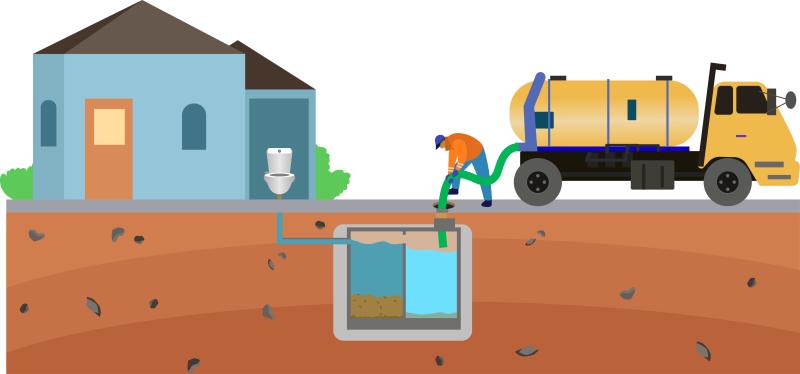Septic: Hiring a Septic Professional

Environmental Health maintains current lists of septic system professionals certified to perform services in Thurston County. Although we strive to keep these lists current, we recommend you check with your contractor to make sure they are still certified.
- Designers: Can evaluate soil suitability and subsequently design an appropriate septic system. NOTE: Designers are licensed by Washington State Department of Licensing, not by Thurston County.
- Installers: Can install new systems, make repairs, and modifications; also can replace pumps, septic tanks, pump chambers, and holding tanks.
- Monitoring Specialists: Can inspect simple and complex systems, community systems, monitor pre-treatment devices, monitor disinfection units, and perform system sampling. Certain septic systems require routine monitoring by a Certified Monitoring Specialist.
- Pumpers: Can inspect and pump septic tanks, make minor repairs (such as sealing cracks and replacing baffles), pump and dispose of septage.
Need to hire a septic professional?
Licensed Designers and Professional Engineers can design systems for new installations, alterations, and repairs. Many also evaluate system problems, and perform inspections and maintenance. Designers and Professional Engineers are licensed through the Washington State Department of Licensing.
Questions to ask Designers and Engineers:
- What are the estimated costs for your project?
- What's included and not included? (Examples: site evaluation, design package, pressure test, as-built package, health department fees)
- Do you charge extra for inspections, extra visits, or the homeowner’s manual?
Installers can install new systems, alter or expand existing systems, and repair failed systems. Some may also inspect and perform maintenance on systems. Washington State regulation requires that Installers are approved by the local health department.
Questions to ask Installers:
- What are the estimated costs?
- What's included and not included? (Examples: full installation, backfill, electrical work, health department fees)
- Do you contact the local health department or do I need to?
- Do you warranty your work? For how long? Ask them to explain their warranty.
- Do you charge extra for any services?
Maintenance Service Providers can inspect the whole system, including tanks, pumps, additional treatment devices (such as a sandfilter), and the drainfield. These professionals may be known as Operation and Maintenance (or O&M) Specialist, Inspectors, or Monitoring Specialists. Your local Health Department may or may not require your septic system to be inspected by a monitoring specialist.
Questions to ask Maintenance Service Providers:
- What are the estimated costs? Does this include health department fees?
- What will the inspection include and not include? (Examples: checking tanks and drainfield, cleaning filters, checking for leaks)
- Do you charge extra to dig up the lids to the system? What if I do the digging?
- Do you know how to service my type of system? (Examples: pumps, pressure distribution, sand filter, specific proprietary components)
Sewage Pumpers can pump tanks and transport the sewage material to an approved treatment facility. Many can also inspect the tanks for cracks and leaks, as well as check the drainfield area and evaluate landscaping and proper drainage. Washington State regulation requires that Septic Pumpers are approved by the local health department.
Note: Having your tank(s) pumped is not a substitute for an inspection. In general, a Maintenance Service Provider (or owner, if allowed in your area) should inspect the system and determine if pumping is needed.
If you are selling your home you will need to have your system inspected and tank(s) pumped by a certified professional.
Tanks need to be pumped when the accumulated scum and sludge equals 1/3 of the tank depth. Most tanks will need to be pumped every 3-5 years but can vary depending on system usage.
When your septic system is inspected, your septic professional will measure the scum and sludge levels to see if any tanks need to be pumped.
If your system qualifies, you can take the self-inspector course so you can measure the scum and sludge yourself to see if your tank needs pumping!
Questions to ask Sewage Pumpers:
- What are the estimated costs? Does this include health department fees?
- After pumping the tank(s), will the professional evaluate the integrity of the tank and check for cracks and holes on the inside?
- Do you charge extra to dig up the lids to the system? What if I do the digging?
- Do you inspect the whole system?
- Can you make minor or small repairs if my system needs them? (replace baffle; patch crack in the tank, extract roots from the tank or d-box).
This is not a recommendation, endorsement, or guarantee of workmanship. Current status of sewage system professionals can be obtained from the Washington State Dept. of Licensing (DOL) by calling 360-664-1568, or by looking at their website.
